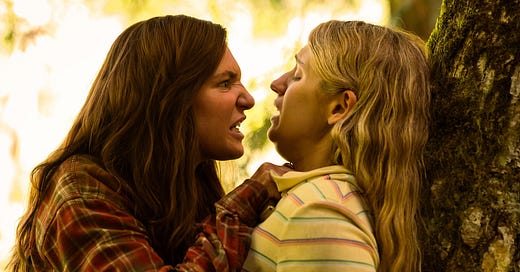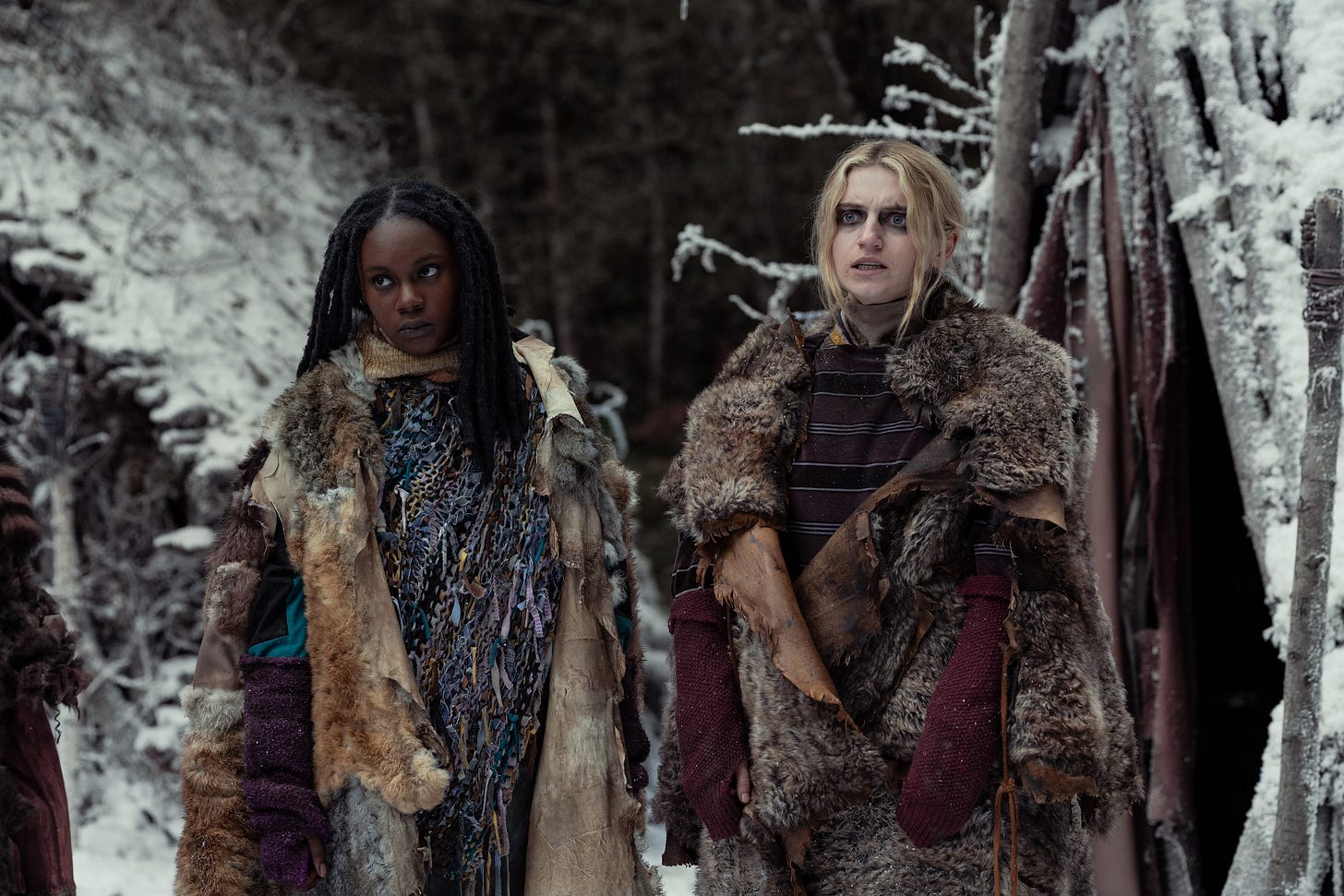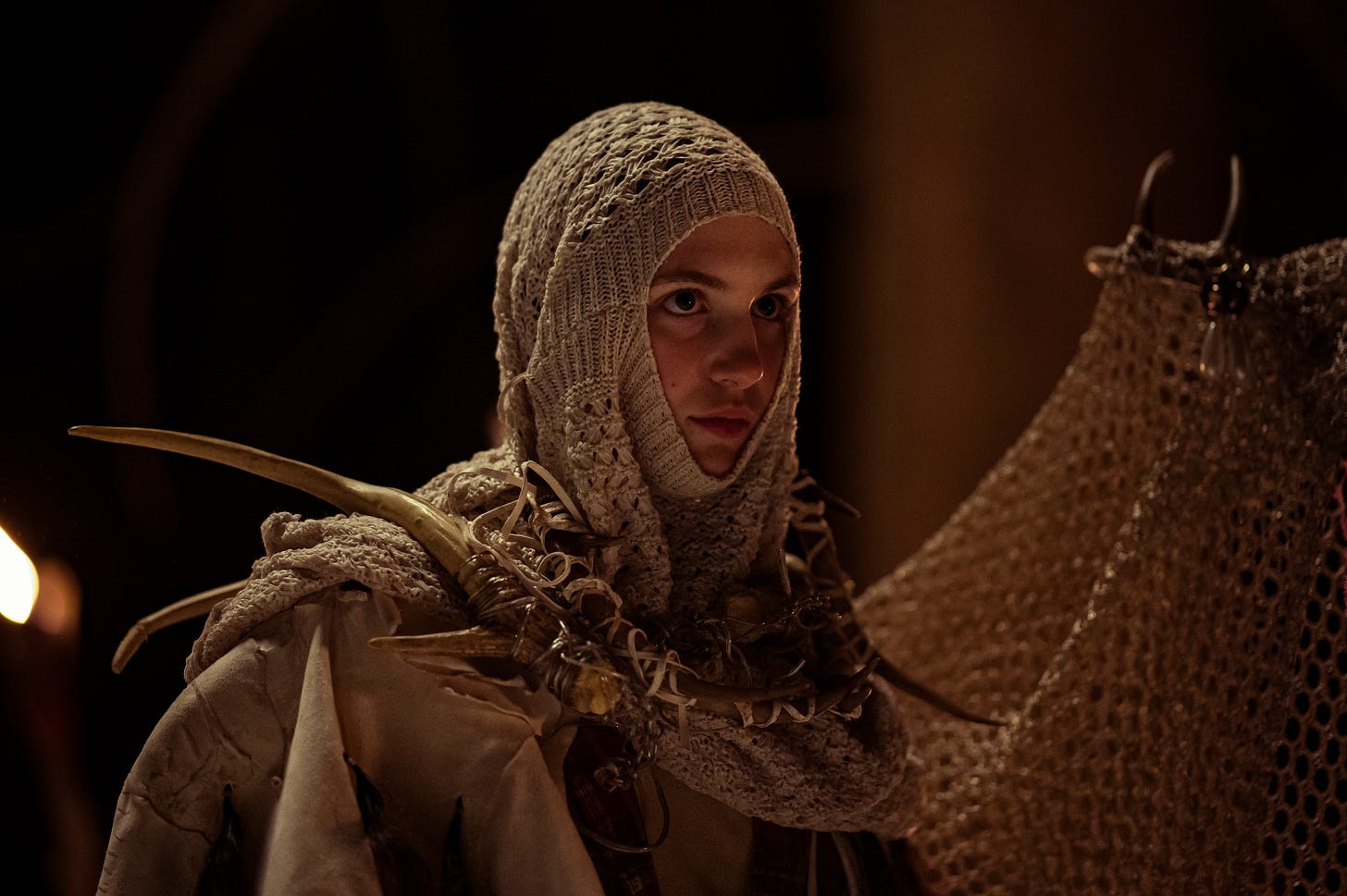Nora Felder, Craig Wedren, And Anna Waronker On Crafting The Deep Subconscious Vibes Of 'Yellowjackets'
The music team reveals their collaborative process for the third season of the popular series...
Yellowjackets is a popular thriller series about a group of teens whose plane crashes in the 90s and their harrowing ordeal that haunts them into present day. It has a large ensemble of two generations of actresses who play these characters, both younger and older. As the story unfolds, we learn more and more of the horrors that played out then and now. Guiding the action is an indelible score, and strategic song choices illuminate this parable of modern life's fragility.
Emmy-winning Music Supervisor Nora Felder is at the top of her field with her transcendent work on Stranger Things (among many others). She is at the pinnacle of what pre-existing music can do for shows and films, not only on an aesthetic level but propelling artists back on the charts. The amazing duo of Craig Wedren (Shudder to Think) and Anna Waronker (that dog.) compose the scores for each season. They wrote all the source cues and performed the jolting intro song that ranks as one of the best of its kind. The dream team of Felder, Wedren, and Waronker spoke to Immersive recently via Zoom about the recently completed third season.
[This conversation is edited for clarity and length.]
Let's talk Yellowjackets. Music is a big part of this show, especially the opening...
Nora Felder: It's the best main title ever. Once you hear that song, you can't get it outta your head in a good way. I never wanna skip through it. It hypes you up for what you're about to watch.
Craig Wedren: That's the test. When the producers said they wanted a main title theme, we didn't immediately realize they wanted a whole song. Those main title songs were so out of fashion when we started this show. We were stoked when asked to do it; that was the goal - we wanted to ensure nobody would skip through it.
What was the thought process behind the theme?
Craig Wedren: We knew they wanted a theme, and we wrote about five different directions. Then it became, "We like this from column A and this from column B and be, and you know, turn up Jesus Lizard and turn down the Radiohead." I mean, these are notes. "More Breeders, less Bloody Valentine, or vice versa." We were definitely coming from the nineties, but without any of the rules of the nineties.
The nineties were very rigid and sort of genre-siloed. Anna's band, that dog., and my band Shudder to Think came up during that time. There were so many rules, and it was really a drag. At this point, on the other side of the digital divide, being grownups and doing something for television in a sort of post-genre era, we were really able to process the whole history of the thing without any guilt.
Anna Waronker: Yeah. We also wanted to do it as if we were in the band we wanted to be in together during that time; what would it sound like... without the bitchy band politics that we don't have. So it was a fun task. And we reopened that can of worms when we wrote ‘Sleepwalking’ for this season.
Craig Wedren: The songs we get to write for the show, and then the score, too. We just pretend we're in weird, different bands or the same band but in different phases. It's like an experimental goth phase; the other is the indie pop phase.
Nora Felder: We were talking about the importance of the score because if you took the show and put a generic score on it, it would be completely different. That's how integral that score is. It's the main character of the show.
Nora, do you like the phrase needle drops?
Nora Felder: It makes music sound so technical. I don't use it personally, but I've heard many people use it. It's the technical term for putting the needle on a turntable and lifting it. They're songs. I think it makes music sound less passionate.
These song uses are hugely important. You've obviously done Stranger Things, and these tracks will actually pop up back on the charts.
Nora Felder: There are the Billboard Top TV song charts and Yellowjackets had five in the top 10. We're up against some heavy hitters like The White Lotus. I got a notice, and it was even after the show aired that they released the second Billboard TV charts top 10, and we had two more songs in there. Stone Temple Pilots popped back in at this time.
Stone Temple Pilots is one of those bands I wasn't crazy about when I was younger, but now I just hear the emotion behind the music. They have some great songs, like Big Empty. Nora, are there songs that stand out to you above others?
Nora Felder: I'm really happy with Marianne Faithfull's ‘The Mystery of Love’. I knew I wanted to find a place for it, and it seemed great when this scene came up. I was so happy because when I reached out to the label, they didn't even know they represented it. It was just like, is that a surprise? Months later, when she passed, it made it even more special. It lined up nicely in the scene we used it in.
I like Craig and Anna's cover of ‘Glycerin’. We didn't think we would get Bush because of our budget, and sometimes things have to go. So, what happened was that Craig and Anna did this version. We loved it, but the showrunners were torn because they were like - we do have the money for Bush. Let's find another place to use it. Then we decided on the end of the episode, which was perfect because this is when Van died; to me, it's really emotional. Then, all of a sudden, it brings you back to this sweetness of their version of it.
And then lastly, there are so many... I was at a music festival in France, and I saw a band called LohArano. They were incredible. I got their album and everything. I thought I'd love to find a spot for this song, ‘Bae Nosy’. I don't know where. It's this female-fronted metal band from Madagascar; female bands rarely come from there. I've never really heard that. Everyone just got it all the way through.
That's excellent. Let's talk a little bit about the showrunners. I know they have their hands in the music and are big music heads themselves.
Anna Waronker: For Craig and myself, it's been very fun and trusting. They love what we bring to the table. They want us to be as weird as possible and just reach as far as we can. It's an enjoyable, collaborative, experimental relationship that sometimes goes more into a theater mode than television.
Craig Wedren: There are so many characters and so many relationships. And times two, because you have the young and adult versions. So it's this kind of exponential and crazy. Initially, working with the producers, we made distinctions between adult and teenage versions of characters. Now that we're in season three, the breadth and depth of the trauma and horror are revealing. Everything's just kind of smashing together, which is gripping and nightmarish. The showrunners and producers - we call them JAB (Jonathan Lisco, Ashley Lyle, and Bart Nickerson), just really encourage us to try stuff.
How do you how do you start the score?
Craig Wedren: Sometimes, writing and recording are at the same time. Usually, both over here (in the studio). One of us will have a melody, or there'll be a sound - or we'll start at a piano. There are a thousand ways in, especially with this show where there's a lot of music, and it's very bespoke, and we're always trying to keep it fresh but also rooted. So familiar but not repetitive. We wind up coming up with lots of tricks to sort of get ourselves into new head spaces for new variations on themes, sounds, and scores.
Question for the room. The changing of seasons seems to be a big theme in the show. How much did that reflect the musical choices, if at all?
Craig Wedren: The seasons affect the sounds they're hearing and the wilderness, affecting the score. For instance, when it was spring, we heard all these things. I think it was spring. That's where we ended up this last season before it was snowy and freezing. There were a lot of frog sounds, which played a big part in the score. There's the snow crunch versus the wood crunch on the floor. It's not conscious usually, but there are times where, especially on this last season, we're using these modular synths, and they make this kind of extraordinary otherworldly crunching sounds. Some of them feel warm, and some of them feel monstrous. It got more monstrous the colder it got or the deeper underground you got.
Weather changes moods...
Nora Felder: The sidebar to weather, there's a difference between the current day scenes where songs tend to be playing in the background. Whereas when they were stranded, there was no way for them to play music. So, that's why when you had the frog hunters come, there was an opportunity for them to be on the island, have some electricity, and play something. We needed to put whatever was playing big and playing on the radio at the time, so we put Sugar Ray's ‘Fly’; it was interesting hearing that in the middle of the wilderness.
So, any particular challenges, any parts of this season that were harder to place than others in terms of songs and score...
Nora Felder: I think the hardest moment, transparently, was Van's death and Taissa coming and finding her. That scene went on for a very long time. Initially, I thought that could have been a great score moment. Whenever moments tend to be long like that, I automatically believe that could be score. Sometimes, it's hard to think I have to take a song and make it work for that long a period. We often use Radiohead during these big moments. They wrote songs long enough and with enough movement to underscore these types of moments, which many artists don't.
Craig Wedren: We're happy when they can't clear a song and then need us to write a song, which is what happened in episode 10.
Nora Felder: I suggested Laurie Anderson's ‘O Superman’. We kept trying it in different episodes, and then it landed in this one, and I did not realize that she was so precious about that song. I thought, oh boy, no one's used this. So maybe nobody's found something cool. She hasn't found a story she wants to associate it with because it's so precious to her.
Anna Waronker: We ended up writing three songs for the spot because it was so important. It was such a big part of the episode, and we knew how much ‘O Superman’ meant to them. So, we wanted to ensure we hit all of the emotional beats.
Craig Wedren: It was more like we were worried, not worried. We just thought that we should also write something that had no relationship to anything. O Superman has that spare pulsing thing, so we're like, let's do something spare and pulsing.
Anna Waronker: So then we did ‘Sleepwalking’, which we thought worked really well. We actually wrote it with the picture in the background, just as inspiration. There were a lot of moments that happened while writing that just happened to land on those picture moments that made it work so well.
So, what's it like being on the other side of season three with the foreshadowing of season four?
Craig Wedren: I just feel really excited. I feel like there's probably gonna be a nice little stretch of time for Anna and me to get our ducks in a row, some of which I'm sure we'll just discard completely. We already have so many fun ideas for season four, even though we have no idea what it's gonna be.
Anna Waronker: We have to do so much organizing because the score is so layered, and we like to work very spontaneously. So we learned in season three that we've got to really get it cataloged. So when we want to reference these three seasons' worth of deep music, we know precisely how to deal with it.
Nora Felder: I'm just happy to know that it's been picked up. My subconscious is starting to say, open your mind to songs. I can allow myself to think about those characters again. Get back into that story and start loading my arsenal with new ideas.
The entire playlist from Yellowjackets season three is streaming at Spotify and the score is available via this link.






